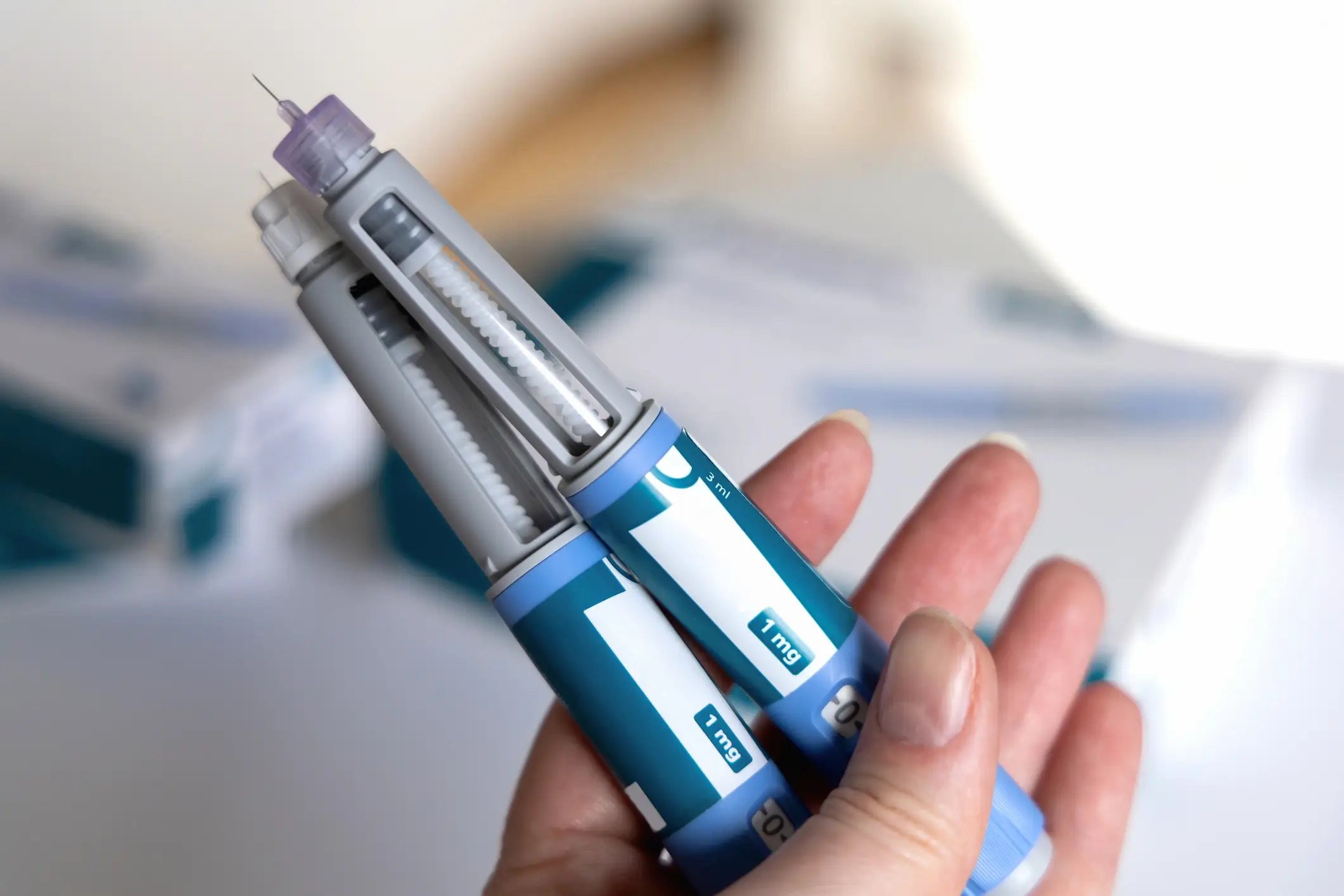
An expert has revealed the potential harm you could cause to your body if you pause taking Ozempic, then resume again.
Ozempic is a drug that's primarily used for those with type 2 diabetes, however, it has become increasingly popular as a weight loss medication, with many people - including celebrities - using it to drop the pounds.
It's administered via a weekly injection, with dosages starting from 0.25mg and increasing to the recommended limit of 2mg.
It has become the tool of choice for those hoping to lose weight, despite it not being approved for this purpose.
Advert
However, many wonder what happens if the drug is stopped, what side effects might be experienced, and whether it's possible to restart taking the medication again.
Now, one doctor has explained exactly what could happen.

How does Ozempic work?
Ozempic is a drug administered via a weekly injection that helps lower blood sugar levels in your body.
The drug works by mimicking the body's own GLP-1 hormone. By triggering insulin secretion from the pancreas, cutting back glucose production in the liver and slowing digestion, it helps to curb appetite and boosts feelings of fullness, inadvertently helping users lose weight.
What happens if Ozempic is stopped?
An article on Medical News Today - written by biologist D. M. Pollock and reviewed by pharmacist Philip Ngo - explains that there are a number of reasons why patients choose to end the use of Ozempic.
However, once it is stopped, the effects will also begin to end, too, with many people experiencing an increase in appetite.
A study from 2022 found that after one year of stopping a combination of both semaglutide and 'lifestyle interventions', such as counseling on diet and exercise, patients gained two-thirds of their lost weight back.
Though, a further study from 2024 found regular exercise can help combat this.
If Ozempic is being used for symptoms of type 2 diabetes, patients can experience high blood sugar levels. Side effects of this can include:
- excessive thirst
- headaches
- nausea
- fatigue
- vomiting
- blurry vision
- excessive urination

Can Ozempic be restarted?
If you plan on restarting the use of Ozempic, it's important to do so with the guidance of a medical professional.
According to the experts, gradual reintroduction is required when reusing the drug, which can also help prevent any gastrointestinal side effects.
Many people wonder whether it's safe to stop taking Ozempic for a short period of time - for example, a vacation - before starting again.
However, according to UCLA Health, it isn't recommended.
Health Clinical Nutrition expert Mopelola Adeyem explained: "Ozempic is a medication that is intended to be taken weekly and not as needed, thus it is not recommended to intentionally skip your Ozempic dose.

"The focus during the holidays should be to make healthy, mindful, portion-conscious food choices, so that you still enjoy the holiday season without it taking you off track of your overall health goals.
"When people start Ozempic they may experience symptoms such as nausea, vomiting, diarrhea and constipation which may resolve as their body gets used to the medication. However, when you skip Ozempic, there is risk, on restarting the medication, you may experience these symptoms again. The concern is greater if you have skipped the medication for several weeks and restart at a higher dose.
"Furthermore, depending on how long you have skipped your Ozempic you may need to start on a lower dose when restarting."
A spokesperson for Novo Nordisk - who manufacture Ozempic - told UNILAD: "Patient safety is of the utmost importance to Novo Nordisk. We recommend patients take these prescription-only medications for their approved indications and under the supervision of a healthcare professional.
"As per the licenced indication, Ozempic®(semaglutide injection) should only be used for the treatment of adults with insufficiently controlled type 2 diabetes mellitus as an adjunct to diet and exercise (as monotherapy or in combination with other medicines for treatment of diabetes).
"Treatment decisions, including discontinuation of treatment, should be made together with a healthcare provider who can evaluate the appropriateness of using a GLP-1 based on assessment of a patient’s individual medical profile."
Topics: Health, Ozempic, Food and Drink, News
